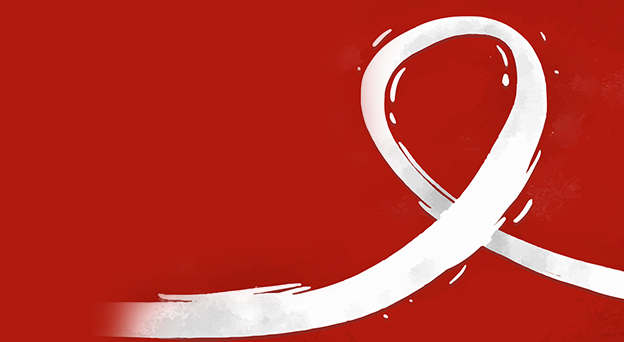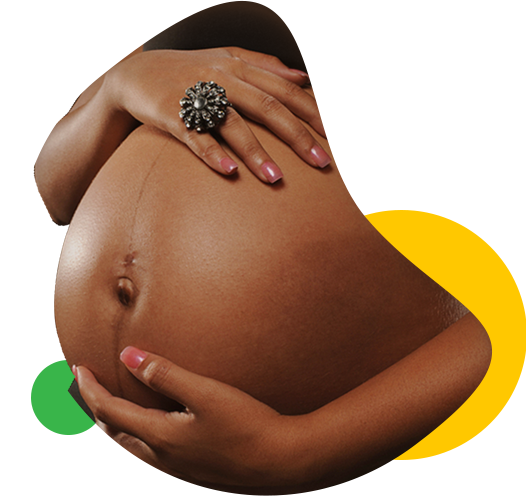Preventing Mother-to-Child Transmission of HIV
Preventing Mother-to-Child Transmission of HIV

Prevention Of mother-child transmission of HIV/AIDS is Possible
Mother-to-child transmission of HIV is the spread of HIV from an HIV-infected woman to her child during pregnancy, childbirth (also called labor and delivery), or breastfeeding (through breast milk). Mother-to-child transmission is the most common way that children become infected with HIV.
Pregnant women with HIV receive HIV medicines during pregnancy and childbirth to reduce the risk of mother-to-child transmission of HIV. In some situations, a woman with HIV may  have a scheduled cesarean delivery (sometimes called a C-section) to prevent mother-to-child transmission of HIV during delivery.
have a scheduled cesarean delivery (sometimes called a C-section) to prevent mother-to-child transmission of HIV during delivery.
Babies born to women with HIV receive HIV medicine for 6 weeks after birth. The HIV medicine reduces the risk of infection from any HIV that may have entered a baby’s body during childbirth.
Because HIV can be transmitted in breast milk, women with HIV living in the United States should not breastfeed their babies. In the United States, baby formula is a safe and healthy alternative to breast milk.

What is mother-to-child transmission of HIV?
Mother-to-child transmission of HIV is the spread of HIV from an HIV-infected woman to her child during pregnancy, childbirth (also called labor and delivery), or breastfeeding (through breast milk). Mother-to-child transmission of HIV is also called perinatal transmission of HIV.
Mother-to-child transmission is the most common way that children become infected with HIV.
Can mother-to-child transmission of HIV be prevented?
Yes. The risk of mother-to-child transmission of HIV is low when:
Women with HIV receive HIV medicine during pregnancy and childbirth and, in certain situations, have a scheduled cesarean delivery (sometimes called a C-section).
Babies born to women with HIV receive HIV medicines for 6 weeks after birth and are not breastfed.
Is HIV testing recommended for pregnant women?
The Centers for Disease Control and Prevention (CDC) recommends that all pregnant women get tested for HIV as early as possible during each pregnancy.
Pregnant women who test HIV positive receive HIV medicines to reduce the risk of mother-to-child transmission of HIV and to protect their own health. (HIV medicines are recommended for everyone infected with HIV. HIV medicines help people with HIV live longer, healthier lives and reduce the risk of sexual transmission of HIV.)
How do HIV medicines prevent mother-to-child transmission of HIV?
HIV medicines reduce the amount of HIV in the body. Having less HIV in the body reduces a woman’s risk of passing HIV to her child during pregnancy and childbirth. Having less HIV in the body also protects the woman’s health.
Some of the HIV medicine passes from the pregnant woman to her unborn baby across the placenta (also called the afterbirth). This transfer of HIV medicine protects the baby from HIV infection, especially during a vaginal delivery when the baby passes through the birth canal and is exposed to any HIV in the mother’s blood or other fluids. In some situations, a woman with HIV may have a cesarean delivery (sometimes called a C-section) to reduce the risk of mother-to-child transmission of HIV during delivery.
Babies born to women with HIV receive HIV medicine for 6 weeks after birth. The HIV medicine reduces the risk of infection from any HIV that may have entered a baby’s body during childbirth.
Are HIV medicines safe to use during pregnancy?
Pregnant women with HIV can safely use many HIV medicines during pregnancy to prevent mother-to-child transmission of HIV and to protect their own health. Health care providers carefully consider the benefits and the risks of HIV medicines when recommending HIV medicines to use during pregnancy.
The following factors are considered when choosing HIV medicines to use during pregnancy:
Pregnancy-related changes in the body that can affect how the body processes HIV medicines. Because of these changes, the dose of an HIV medicine may change during pregnancy.
The risk of certain side effects from some HIV medicines during pregnancy.
The potential short- and long-term effects of HIV medicines on babies born to women with HIV. Thus far, no HIV medicines have been clearly linked to birth defects.
Are there other ways to prevent mother-to-child transmission of HIV?
Because HIV can be transmitted in breast milk, HIV-infected women in the United States should not breastfeed their babies. In the United States, baby formula is a safe and healthy alternative to breast milk.
There are reports of children becoming infected with HIV by eating food that was previously chewed by a person infected with HIV. To be safe, babies should not be fed pre-chewed food.
How can I learn more about preventing mother-to-child transmission of HIV?
Read the following AIDSinfo fact sheets:
The Use of HIV Medicines During Pregnancy
Preventing Mother-to-Child Transmission of HIV During Childbirth
Preventing Mother-to-Child Transmission of HIV After Birth
This fact sheet is based on information from the following sources:
From CDC: HIV Among Pregnant Women, Infants, and Children
From the Department of Health and Human Services: Recommendations for Use of Antiretroviral Drugs in Pregnant HIV-1-Infected Women for Maternal Health and Interventions to Reduce Perinatal HIV Transmission in the United States
